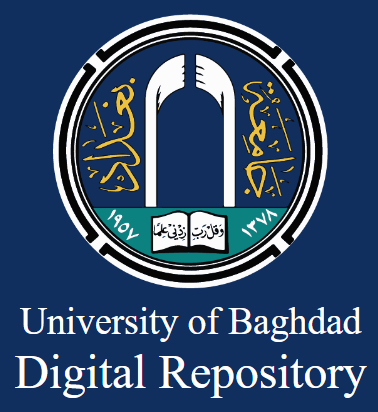Sustainable design in the Iraqi craft industries and ways to develop them
DOI:
https://doi.org/10.35560/jcofarts1239Keywords:
sustainable design. Craft industries. Reed processing. Palm frond treatmentAbstract
Research on sustainable design in Iraqi craft industries and ways to develop them is essential to preserving the cultural heritage and authenticity of these industries while promoting environmentally sustainable practices. Lack of access to modern technologies, knowledge and resources may hinder the growth of these industries and their ability to compete in the global market. The research problem revolves around finding ways to develop sustainable design in the Iraqi craft industries. The expected outcomes of this research include a clear definition of sustainable design, understanding the history of sustainable design in the craft industry, identifying different types of craft industries in Iraq, exploring the basic concepts of sustainable design, evaluating the effectiveness of processing reeds and palm fronds, and identifying natural materials that can be used in craft industrial products in Iraq. Finally, this research can contribute to the development of sustainable and competitive craft industries in Iraq that comply with sustainable design principles, preserve the country's cultural heritage, and promote sustainable development.
References
Abu Shaar, A. (2021). Sustainable design for the built environment: . Opportunities and challenges., 71, 102986. . https://doi.org/https://doi.org/10.1016/j.scs.2021.102986
Al-Abdali & Al-Bukha. (2019). (2019). Enhancing the strength and color stability of Phoenix dactylifera palm fronds using natural dyes and chemical treatments. Journal of Natural Fibers, 16(4), ., 16(4), 500-512. https://doi.org/doi: 10.1080/15440478.2018.1521866
Al-Ali, N., & Al-Najjar, D. (2014). Textiles and Identity in the Near East. In M. C. King, From the 4th to the 1st Millennium BC (pp. 25-34). Oxbow Books.
Al-Ansari, H. A. (2019). Revitalizing Iraqi handicrafts: Challenges and opportunities. . Journal of Cultural Heritage Management and Sustainable Development, 9(1), 14-27. . https://doi.org/DOI: 10.1108/JCHMSD-11-2017-0065
Al-Asadi et al. (2019). The use of potassium permanganate as a natural dye for coloring and improving the durability of palm fronds. . Journal of Natural Fibers, 16(5), 665-677. https://doi.org/doi: 10.1080/15440478.2018.1550529
Al-Dabbagh, A. R. (2018). Traditional craft industries in Iraq: Challenges and opportunities. nternational Journal of Heritage Studies, 1(24), 1-8.
Al-Farsi, e. a. (2013). Enhancing the durability and strength of date palm fronds for handicrafts applications using different tannic acid and alum concentrations. Journal of Natural Fibers, 10(3), , 253-266. https://doi.org/doi: 10.1080/
Al-Fatlawi, M. A. H., & Al-Khayat, F. M. . (2020). Enhancing Reed Properties by Nanotechnology. Journal of Nanotechnology Research, 2(2), 13-17. https://doi.org/DOI: 10.11648/j.jnr.20200202.11
Al-Hadithi, A. (2018). Handicrafts and traditional industries in Iraq. Journal of Islamic Marketing and Consumer Behaviour in MENA, 3(1), 20-24. https://doi.org/DOI: 10.1108/JIMCB-03-2018-0026
Al-Hamdani, S. S., & Hassan, A. S. (2019). Nano-titanium dioxide coating to improve the weatherability of date palm leaflets. Journal of Coatings Technology and Research, 16(1), 213-222. https://doi.org/https://doi.org/10.1007/s11998-018-00175-4
Al-Jabbari, M. (2020). Traditional craft industries in Iraq: An overview. . Journal of Arts and Humanities, 9(9), , 9(9), 1-8.
Al-Juboori, A. A. (2015). . The Role of Traditional Crafts in Heritage Tourism Development in Iraq. Journal of Tourism and Hospitality Management, 1(3), 23-33. . https://doi.org/DOI: 10.15640/jthm.v3n1a3
Al-Rawi, A. A. (2018). The revival of traditional crafts in Iraq: Challenges and opportunities. international Journal of Heritage Studies, 1(24), 87-100. https://doi.org/doi: 10.1080/13527258.2017.1339707
Al-Safi & Al-Farsi. (2012). Traditional uses and properties of Phoenix dactylifera L. (Date Palm) among the Omanis. World Applied Sciences Journal, 20(11), 1573-1578. https://doi.org/doi: 10.5829/idosi.wasj.2012.20.11.2867
Al-Sharafi, et al. (2020). Nanocellulose coatings for enhancing the properties of date palm frond fibers. Journal of Natural Fibers, 17(5), 696-707. https://doi.org/doi: 10.1080/15440478.2019.1640669
Al-Shehri, et al. (2020). Investigation of natural treatment of palm fronds. Journal of Natural Fibers, 17(6),, 16(7), 792-803. https://doi.org/doi: 10.1080/15440478.2019.1678508
Al-Sudani, F. (2019). Traditional Iraqi tanning and leather craft. J, 6(2), . ournal of Islamic Archaeology, 6(2), 51-64. . https://doi.org/https://doi.org/10.1558/jia.38768
Alqaisi , M. (2020) .Taqyim al-muntajat al – sinaeiat eatfyaan biastikhdam al -rumuz al - taebiria [Evaluating industrial products emotionally using emoji. Al - academy Journal, (98), 287–304. https://doi.org/10.35560/jcofarts98/287-304
Alqaisi , M. (2022) . A l-taathirat al-ainfiealiat lil'alwan fi al -muntaj al- sinaei [The emotional effects of colors in the industrial product]. Journal of the college of basic education, 114(28), 103-120. https://doi.org/10.35950/cbej.v28i114.5396
Alqaisi .A. (2019) Tatbiqattasmim al -misahat al -daakhiliat hasab 'anzimat tawlid al –shakl [Applications of Interior space design according to shape generation systems]. Al-academy Journal, (94),5–22. https://doi.org/10.35560/jcofarts94/5-18
Benyus, J. (2002). Biomimicry: Innovation inspired by nature. . Harper Perennial. . https://doi.org/DOI: 10.1007/978-0-385-72474-2_4
Fletcher, K. (2008). Sustainable Fashion and Textiles: Design Journeys. Routledge. . https://doi.org/https://doi.org/10.4324/9781849770708
Fletcher, K. (2010). Slow fashion: An invitation for systems change. Fashion Practice,, 2(2), 155-160. https://doi.org/https://doi.org/10.2752/175693810X12756629232709
Gwilt, A. &. (2011). Shaping sustainable fashion: changing the way we make and use clothes. . Routledge. . https://doi.org/https://doi.org/10.4324/9780203840029
lkhafaji, A. A. (2015). Destination Marketing and Management: Theories and Applications. In K. W. M. Kozak, The Development of Iraqi Traditional Crafts (pp. 67-79). Springer. .
McDonoug, & Braungart. (2022). Cradle to cradle: Remaking the way we make things. North Point Press. https://doi.org/DOI: 10.1016/s0016-3287(03)00087-7
McRobbie, A. (2016). Be creative: Making a living in the new culture industries. John Wiley & Sons. https://doi.org/https://doi.org/10.1002/9781509507314
Orr, D. W. (2002). The nature of design: Ecology, culture, and human intention. . Oxford University Press. https://doi.org/DOI: 10.1093/acprof:oso/9780195175505.001.0001
Pink, S. (2018). Doing sensory ethnography. Sage. https://doi.org/ https://doi.org/10.4135/9781526416035
Stoner, L. &. (2017). Sustainable design for craft industries. . Bloomsbury Publishing. https://doi.org/ https://doi.org/10.5040/9781474294243
Tsekleves, E. C. (2017). Designing for craft-based manufacturing: insights from the sustainable product innovation network (SPIN. The Design Journal, 20(1), 517-535. https://doi.org/https://doi.org/10.1080/14606925.2017.1353194
UNEP. (2002). Sustainable design and innovation: Bringing together ecology, economy, and equity. United Nations Environment Programme. Retrieved from https://wedocs.unep.org/bitstream/handle/20.500.11822/27647/-Sustainable_design_and_innovation_bringing_together_ecology
Wahba, M. G.-S.-R. (2019). Improvement of some properties of woven fabrics made of treated reed. . Journal of Natural Fibers, 16(5), 679-688. . https://doi.org/doi: 10.1080/15440478.2018.1511845














